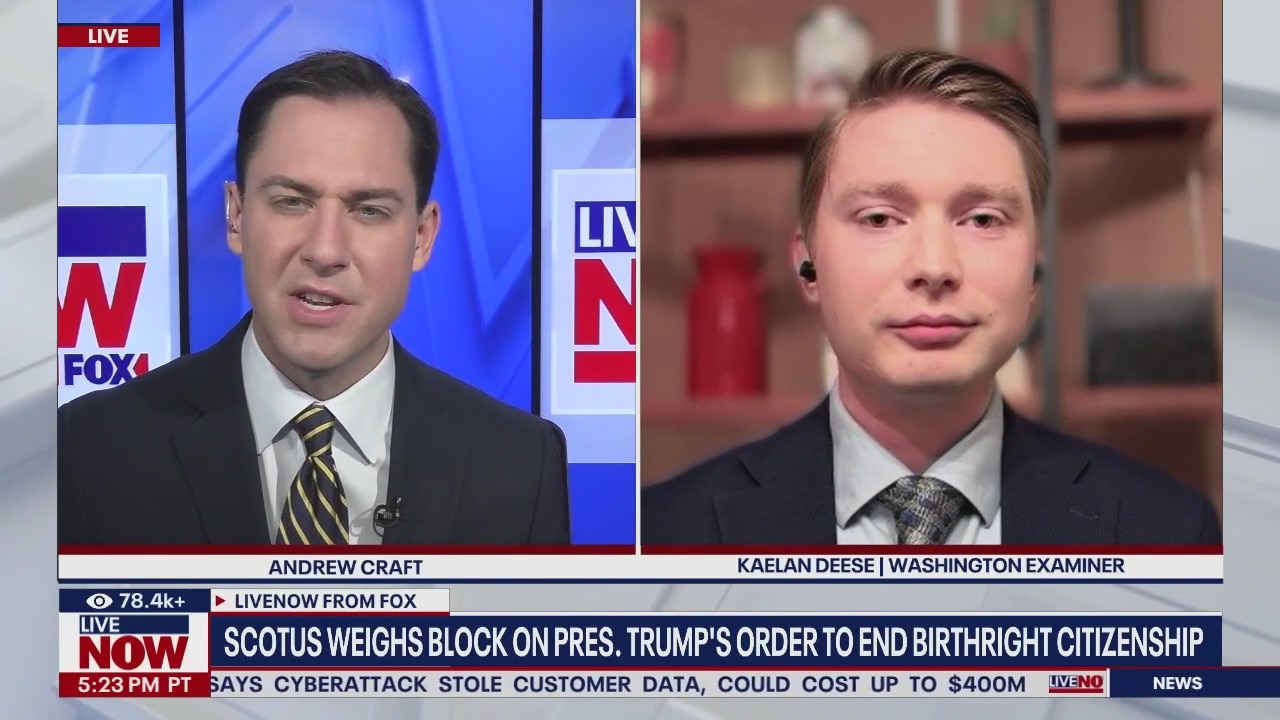
Birthright citizenship: Will SCOTUS block Trump's EO?
The Supreme Court is hearing arguments this week over whether to allow the Trump administration to temporarily block birthright citizenship in at least 27 states until it makes a final ruling on the issue. On Jan. 20, the day President Donald Trump was inaugurated for a second term, he signed an executive order hoping to end birthright citizenship. Since then, 22 states have joined a lawsuit to challenge the president’s order, and lower courts have so far blocked the executive order from taking effect anywhere in the United States. In arguments Thursday, the Supreme Court will weigh the Trump administration's request to narrow those court orders so that they cover only the parties that sued in federal court. The current fight is over what rules will apply while the lawsuits proceed through the courts. But even though the high court is not expected to issue a final decision about birthright citizenship, a ruling for the administration could lead to a confusing, if temporary, patchwork of rules that might differ based on what state children are born in or whether they are members of immigrants rights groups that sued. If the court agrees to limit the ability of judges to issue nationwide, or universal, injunctions, the restrictions would be allowed to take effect for now in at least 27 states.

